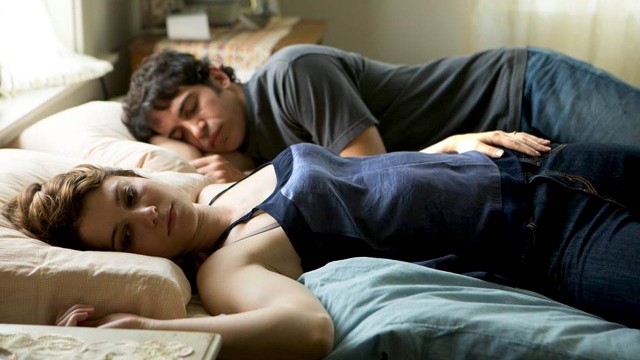In Chris Messina’s new film Alex of Venice, the titular Alex (Mary Elizabeth Winstead) is a well-off white environmental activist lawyer trying to stop the development of new buildings, only to be reprimanded for her display of privilege by Frank (Derek Luke), a hunky black lawyer who grew up in the projects. To him, the new buildings represent more jobs and more opportunity for people from all walks of life. Messina’s calling out of Alex’s privilege through Frank is highlighted for one scene before being mindlessly dropped off so that Alex and Derek can have sex.
This problematic plot contrivance is emblematic of every problem with Alex of Venice, where overused tropes and cliches swamp every single scene. At the beginning of the movie, Alex is married to househusband George (Chris Messina) who takes care of their 5-year-old son and Alex’s movie-version-of-Alzheimer’s Disease-afflicted father, Roger (Don Johnson). When George leaves to pursue his own passions, Roger calls in Alex’s wildchild sister Lily (co-writer Katie Nehra) to take charge of the household and impart worldly lessons of sexual freedom and life balance.
Filmed in the requisite gauzy Golden-hour-abusing shallow-depth-of-field style that has haunted Indie films for years, Alex of Venice is as tired as it is predictable. The plot unfolds in a formulaic fashion as previously dictated by Terry MacMillan novels, Hallmark movies, and sitcoms. Roger has requisite severe Alzheimer’s attacks before starring in The Cherry Orchard, a play about dealing with loss. Lily imparts life lessons to both Alex and Alex’s son. Alex goes through the motions to re-discover her independence.
The main purpose of Alex of Venice is that none of the actors involved were getting any decent roles, so they made their own damn movie. Given that the movie was making the festival rounds in 2014, better known as the Year of the Male Ego, I’m sympathetic to women wanting to make a movie giving themselves juicy and substantial roles that aren’t defined through a male filter. Unfortunately, that was the beginning and end of their purpose. To try to give Alex of Venice some verve, they randomly inserted Themes, bluntly stating these Themes through clunky dialogue intended to give every actress and actor at least 2 scenes to chew through and put on their demo reel. As soon as one of these Themes is underlined, it’s dropped for the next big Theme.
Let’s be real: because the cinematic landscape of 2014 was so utterly dominated by the male ego, criticizing an aggressively mediocre independent DIY film about women discovering their inner strength feels like criticizing a gay film from 1996. Due to the dearth of female-led content, putting down a competent movie about women is akin to kicking a puppy. Yet, there is so much nothing to Alex of Venice, it’s hard to muster anything but contempt. If this movie was led by men, pulling it apart for being an encyclopedic listing of cinematic tropes, for being visually lazy, for not being emotionally satisfying, and for not having much of a purpose would feel good. But, it’s not a bad movie, it’s just an uninteresting innocuous waste of time, about as fulfilling as 75% of Hollywood’s cinematic output. If the choice is between Alex of Venice and Paul Blart: Mall Cop 2, Alex of Venice is the better choice.

